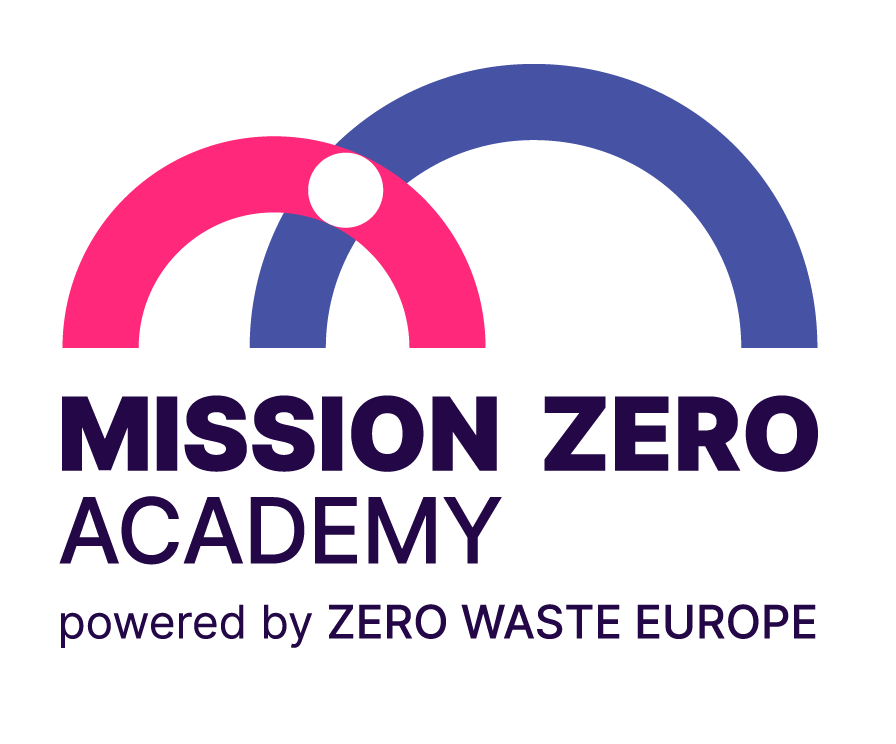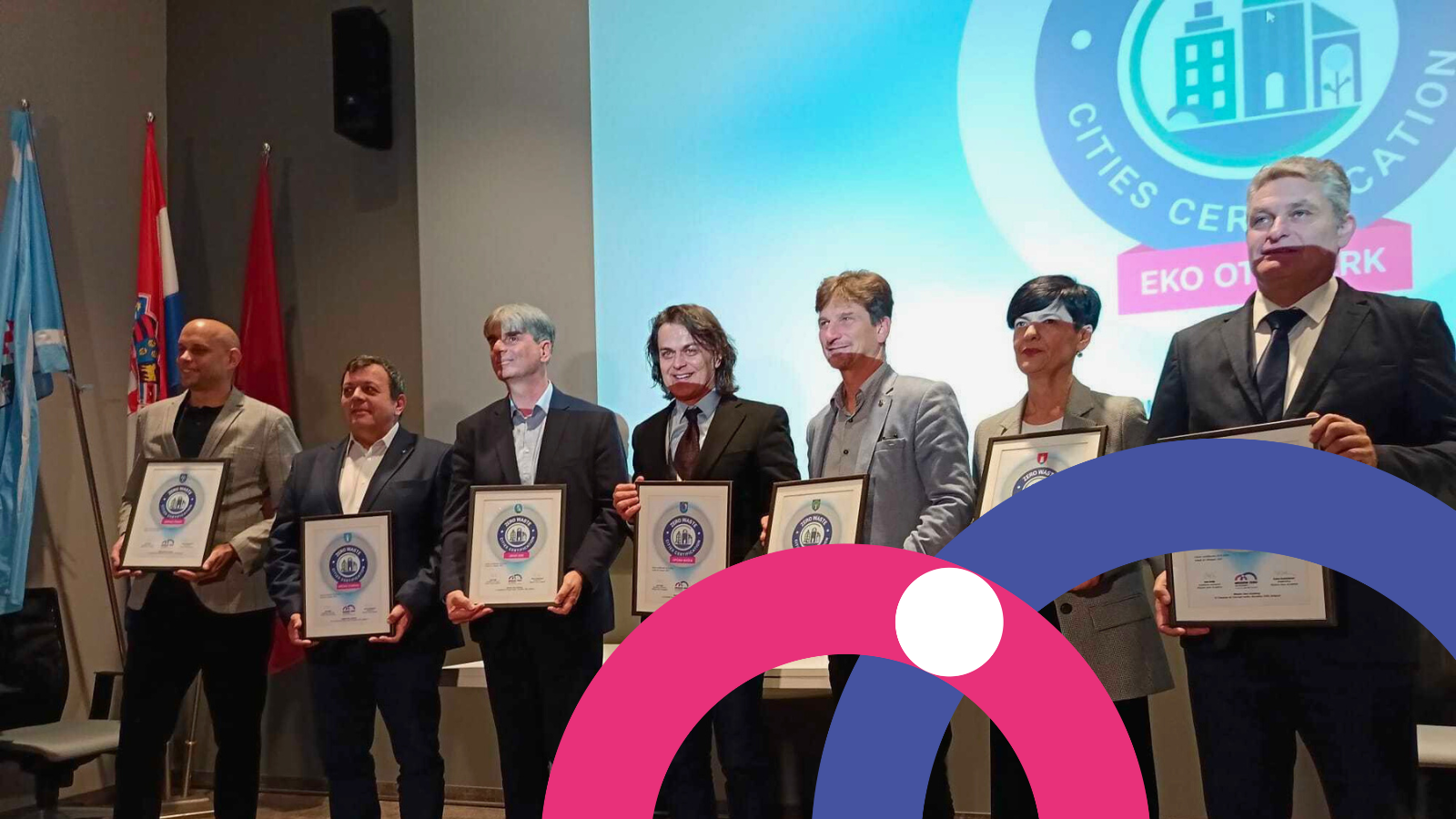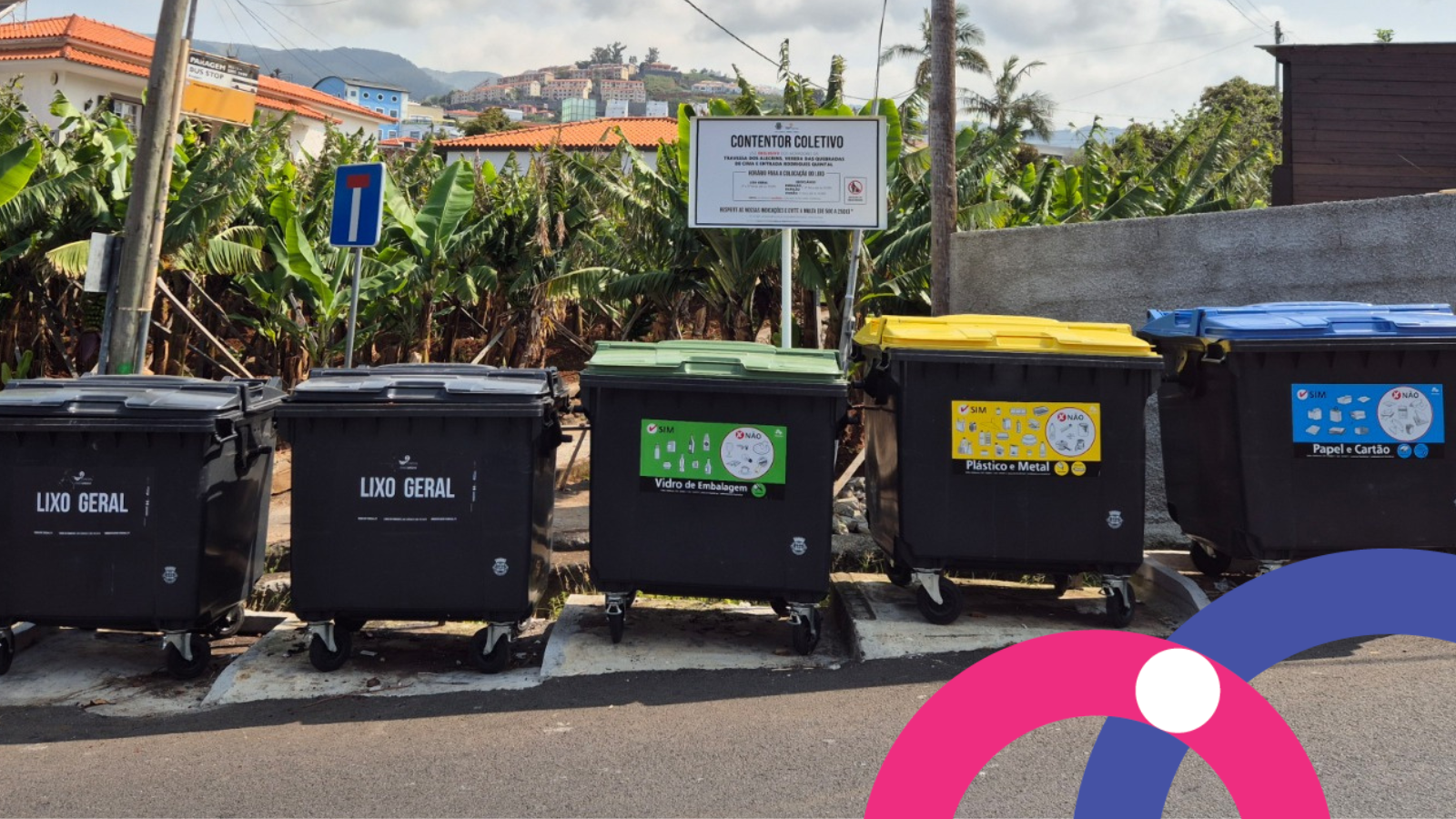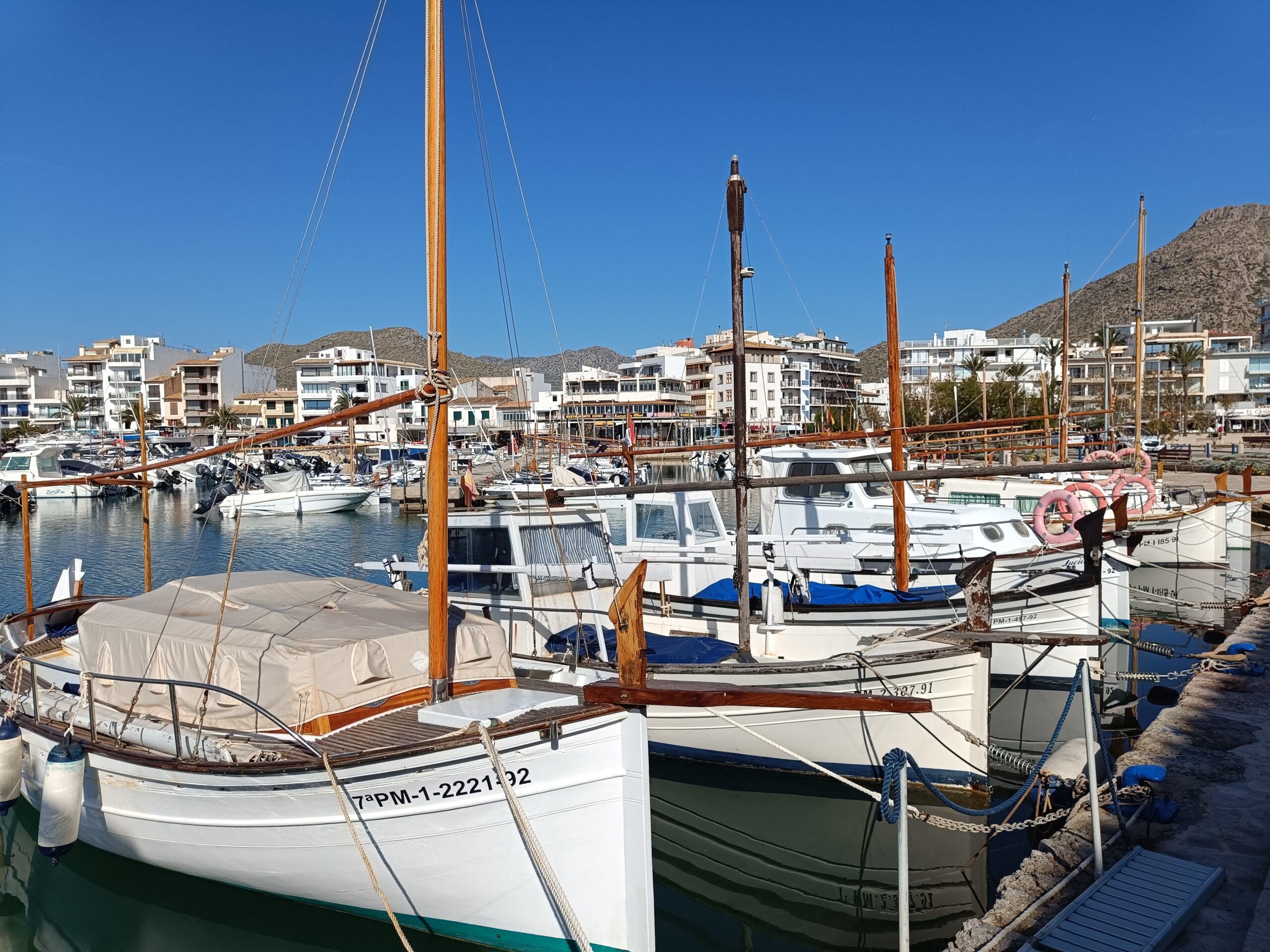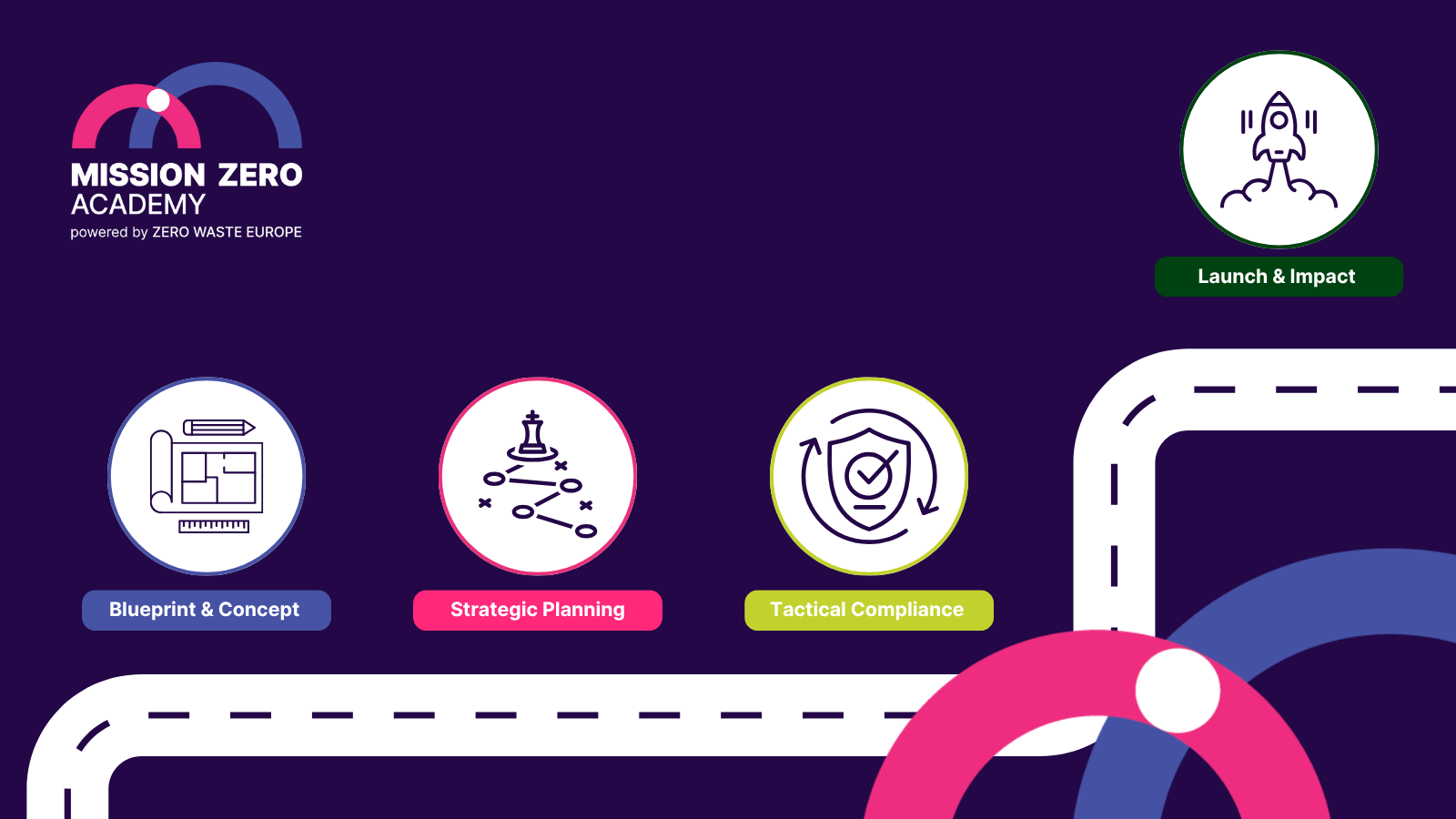Krk, Croatia, 30 October 2024 – Seven municipalities on Krk Island (Krk, Baška, Dobrinj, Malinska-Dubašnica, Omišalj, Punat, Vrbnik), have been awarded the prestigious Zero Waste certification, presented to Europe’s most successful cities and municipalities. This certification was granted by the Zero Waste Europe (Mission Zero Academy) in recognition of outstanding achievements in sustainable waste management.
To mark the occasion, a formal Zero Waste certification ceremony was held today in the Grand Hall of the City of Krk, accompanied by speeches.
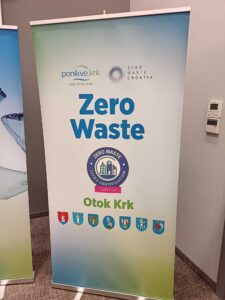
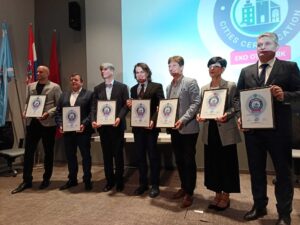
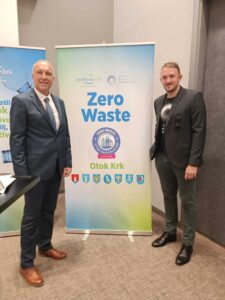
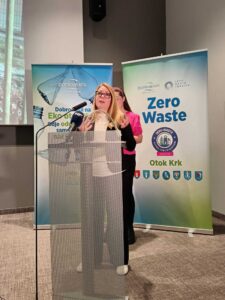
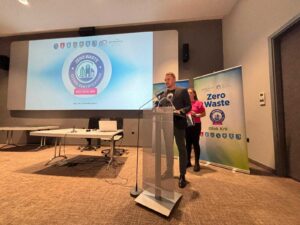
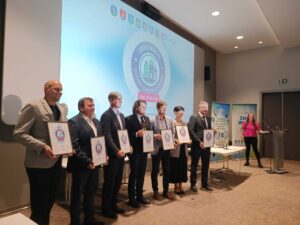
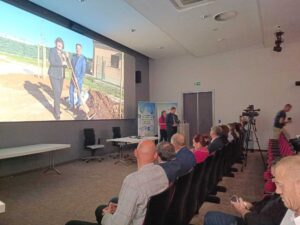
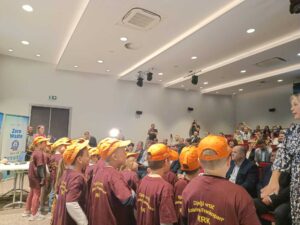
In 2021, through collaboration between Ponikve – Krk’s local waste management company – and Zero Waste Croatia – the national coordinator for the Zero Waste certification – Krk Island first became a candidate for the accreditation. The implementation of waste management processes that aligned with the certificate built upon an already successful waste collection and disposal system, yielding notable results. These results were evaluated by the Zero Waste Europe network. There is still room for further progress as Krk has achieved the first out of five tiers in the Zero Waste certificate, but it is a clear indicator of success.
Despite the significant challenges posed by the pressures of tourism during the summer months, the municipalities on Krk Island have achieved 58% separate waste collection, 22% less mixed waste per capita than the national average, implemented numerous educational and waste reduction measures, and built the necessary infrastructure for effective local waste management (a sorting facility, a composting plant, and seven recycling centers). These successes greatly contribute to the high quality of life on the island, which satisfied residents confirmed in a survey conducted this year. But Krk Island is not stopping there; in cooperation with Zero Waste Croatia, a series of measures have been defined in the Zero Waste plan that will further raise Krk Island on the Zero Waste certification scale in the coming period.
“On behalf of Mission Zero Academy (MiZA), I sincerely congratulate the municipalities on Krk Island whose achievements have led to this valuable certification. We encourage other Croatian and European municipalities, as well as entities in the tourism sector, to follow their example,” said Ana Golja from the Slovenian organisation Ekologi brez meja, an accredited MiZA auditor.
“The Zero Waste certification is a recognition of our long-standing efforts to improve the waste management system and a motivation to continue working toward the highest possible quality of life and environmental protection on our island,” stated Ivan Jurešić, director of Ponikve d.o.o., and coordinator for the implementation of the Zero Waste plan on Krk Island.“We are proud of our collaboration with Ponikve and the residents of Krk Island, who are proving that even in challenging tourist areas, excellent results in waste management can be achieved. We continue to take big steps forward, setting an example for other tourist regions in Croatia and Europe,” said Marko Košak from Zero Waste Croatia, coordinator of the Zero Waste municipalities network in Croatia.
Notes to the Editor
- The Zero Waste Certification is made up of 5 steps: (i) the expression of interest in being Zero Waste by the municipality, (ii) the commitment to be Zero Waste, (iii) the implementation of this system, (iv) its certification and (v) the performance of annual improvements. The overcoming of each of these steps is given with the support and advice of expert entities in the fields of waste and resource management. The evaluation for certification is developed around a scoring system, which includes mandatory criteria and optional scoring criteria.
- Scoring criteria are scored based on the ambition and impact of each implemented policy. The sum of the points defines the level of certification of the municipality and its subsequent number of ‘stars’.
- Subsequent to Certification, municipalities must monitor their activity and make annual improvements to enhance the results achieved. Every 3 years they are subject to new audits.
Press contacts
Sean Flynn, Media Outreach & Communications Officer at Zero Waste Europe, sean@zerowasteeurope.eu or news@zerowasteeurope.eu / +32 471 96 55 93

